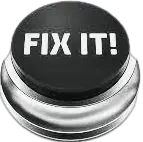When does Marriott charge your card? No matter if you book with Marriott using a prepaid rate or other payments methods, it’s essential that you understand how charges are processed. By reviewing your statement and activating eFolio emails in advance of any potential issues that might arise.
Pending hotel charges may seem to linger on your credit card like an annoying ex-lover; however, making an informal request usually helps speed things along.
Preauthorization
Preauthorization is an increasingly common practice used by hotels to ensure guests have sufficient funds available for incidental expenses, but can cause confusion and irritation if handled incorrectly. Therefore, it is vital for guests to fully comprehend how preauthorization works and its impact on their credit card balance in order to avoid unexpected charges and safeguard the overall balance.
Pre-authorizing a guest’s card enables hotels to ensure there is enough funds in the guest’s account to cover incidentals like room service charges or minibar purchases, while simultaneously preventing any unwanted charges for rooms that remain empty.
Read This: Six Flags Platinum Pass – Take Your Membership Adventure to the Next Level.
Pre-authorizations differ from regular charges in several ways, such as how long their hold lasts and whether or not the merchant deducts the full amount immediately. Some merchants also use pre-authorization for transactions that will settle several days later such as resort stays and car rentals; these transactions are typically known as pending charges and appear separately on cardholder statements until cleared off by merchant and credit card networks.
Pending Charges
As a traveler, it’s vitally important that you review your credit card statement to make sure all charges were processed appropriately and avoid any surprises on your final bill. If a charge seems odd to you, don’t hesitate to get more information from either the hotel front desk or customer service about what happened – otherwise your bill might just skyrocket!
Hotels typically charge the full amount for your stay upon checkout, although this may differ depending on your room type and their policies; some hotels only charge room rate while others may additionally assess incidentals fees.
Booking non-refundable and prepaid rates requires hotels to reserve funds on your account to guarantee payment, similar to when hotels or car rental companies use pre-authorizations – in this instance, these funds remain as unbilled charges on your card until your merchant settles their transaction with your issuer.
Pending charges typically last 30 days before being released by your credit card company or merchant directly, so if the hold hasn’t expired you should contact either party and try reaching out directly – most retailers should be accommodating and agree to cancel it provided that you politely explain why this charge exists to them first.
Check-out
Hotel reservations often require credit cards as guarantees; the exact timing of when hotel charges appear can depend on hotel policies and booking details. To minimize unexpected charges and ensure an enjoyable hotel stay, travelers should use these tips: Monitor their card statements carefully, understand the difference between holds and charges, and select payment methods with care – doing this can help them to avoid surprise fees while remaining stress-free during their trip.
As part of their check-in process, hotels will place a temporary authorization hold on your credit or debit card to ensure funds are available for incidental charges. While this will temporarily reduce your available credit limit, once checked out the hold will be released by the hotel and your limit restored. For this reason it’s recommended that credit cards instead of debit cards be used when staying in hotels as these typically offer stronger fraud protection measures and rewards such as rewards programs and cashback incentives.
At check-in, the hotel will also secure the full estimated amount of your stay – including any anticipated room service and mini bar purchases – along with any estimated room service or mini bar purchases that might occur during your stay. Upon checkout, specific charges that remain will be reconciled against excess or disputed amounts in your account and released accordingly from your bill; for instance if smoking was observed in non-smoking rooms or damage occurred to property then this charge would appear on your final bill and typically appear within days.
Remaining Balance
At the conclusion of your hotel stay, any outstanding balance will be charged directly to your card. This charge typically includes room and tax charges as well as incidentals such as resort fees. Before paying your bill in full, it’s advisable to thoroughly review it to make sure all charges match with what was received; any discrepancies should be brought up directly with the hotel to address them immediately.
As soon as you book a stay at a Marriott property, it is crucial that you understand their payment and billing practices so as to avoid any unpleasant surprises. This includes understanding when they will authorise a hold at check-in and charge at checkout; their impact on credit card balance; as well as rules pertaining to prepaid rates. In order to stay informed about unexpected or unusual charges on your credit card statement it would also be wise to activate eFolio emails and monitor credit card statements regularly so as to be alert of any unanticipated charges on your statement in case they arise during your stay at any Marriott property.
With so many Marriott cards and an assortment of benefits available to choose from, it may be hard to determine the one best suited to you. If you are considering applying for one, continue reading to gain more insight into its features and benefits.

